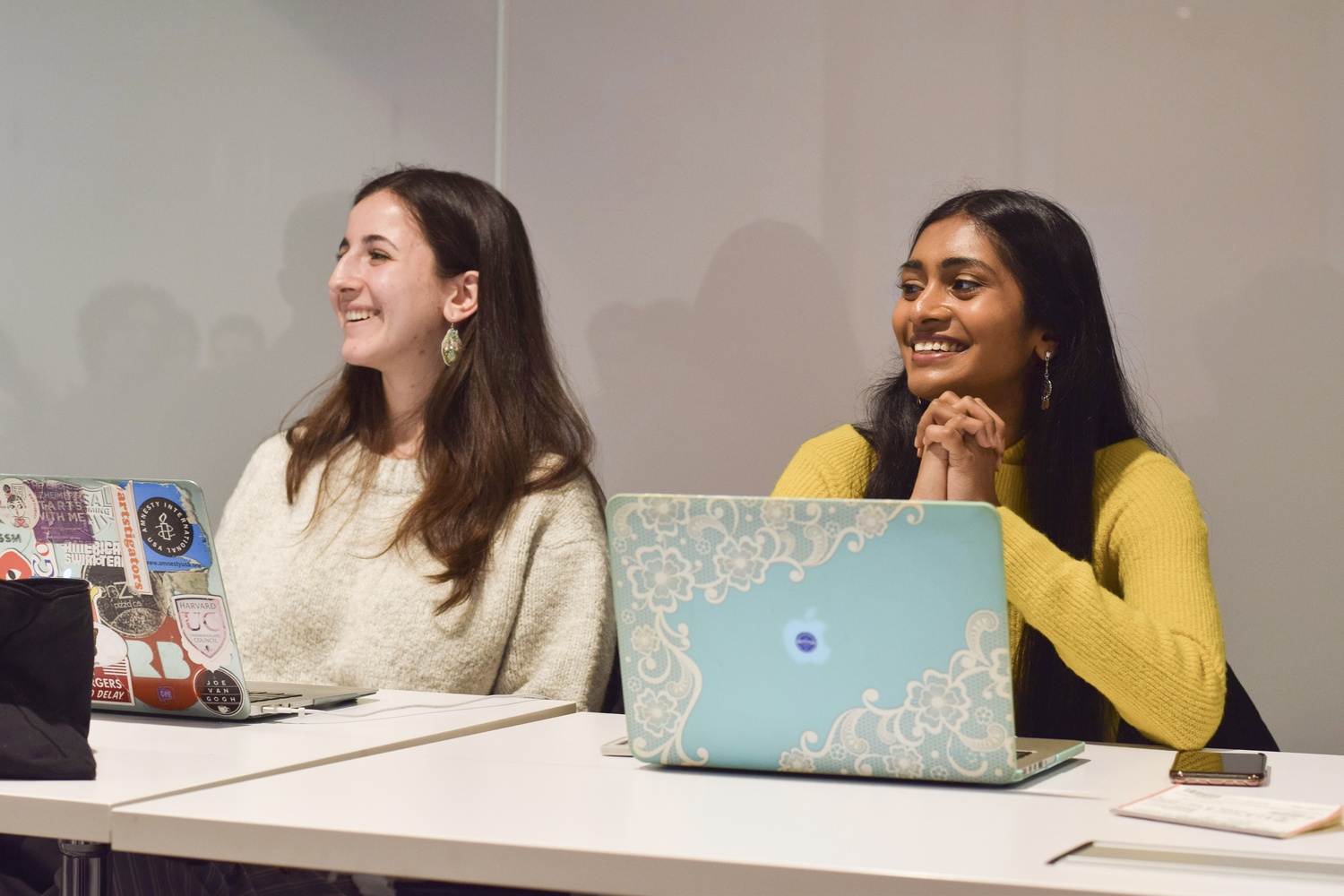
News
Cambridge Residents Slam Council Proposal to Delay Bike Lane Construction

News
‘Gender-Affirming Slay Fest’: Harvard College QSA Hosts Annual Queer Prom

News
‘Not Being Nerds’: Harvard Students Dance to Tinashe at Yardfest

News
Wrongful Death Trial Against CAMHS Employee Over 2015 Student Suicide To Begin Tuesday

News
Cornel West, Harvard Affiliates Call for University to Divest from ‘Israeli Apartheid’ at Rally
Undergraduate Council Establishes Social Inclusion Grant

Harvard’s Undergraduate Council voted to establish a Social Inclusion Grant — a central part of the platform advanced by President Sruthi Palaniappan ’20 and Vice President Julia M. Huesa ’20 — at its first meeting of the academic year Sunday.
Sunday’s meeting was the last of the UC’s 2018-19 session; the UC’s attention will now turn toward the process of electing new representatives.
With the creation of the Social Inclusion Grant, students and student organizations will be able to apply to host “socially-inclusive” events and parties with UC financial backing.
Each week, the UC will fund one event thrown by a student organization and another by an individual student, giving preference to applicants that have received Office of Sexual Assault and Prevention training and organizations with limited funds.
The Council allocated $7,500 to support the grant for the Fall semester. Individual grants may be used to fund alcohol, as long as signs reading “21+ only” are present and at least 25 percent of the funding is used on non-alcoholic purchases.
Some council members shared concerns about permitting the funds to be spent on alcohol purchases.
“I think there are people on this campus who are religiously opposed to going to parties or drinking alcohol. In that situation, we shouldn’t be using a stockpile of their money for supplying things that they don’t religiously agree with,” said UC Secretary Cade S. Palmer ’20, a former Crimson Sports Chair.
Palaniappan noted that money from the student activities fee — an optional annual sum attached to tuition payments — is already used to fund House committee purchases of alcoholic beverages for steins and other House events.
In addition, Quincy House representative Rushi A. Patel ’21 said the UC had precedent for using its budget to fund events that some students on campus did not support.
“For example, the events that [Palestinian Solidarity Committee] held, there was an entire segment of the student population that did not like the event, but we funded it,” Patel said.
In April, the UC allocated $2,050 from its Grant for an Open Harvard College to fund the PSC’s Israeli Apartheid Week, an event that drew criticism from some cultural and religious groups on campus.
Beyond the Social Inclusion Grant, Palaniappan and Huesa sponsored two of the other four bills proposed at Sunday’s meeting, despite the fact that their ability to sponsor legislation remains ambiguous.
Last semester, some representatives questioned whether the president and vice president had the power to vote and sponsor legislation because of an ambiguity in the UC’s constitution.
At its last spring meeting, the council voted to establish a new committee with the power to interpret the constitution. That committee decided to strip the president and vice president of their voting rights and ability to sponsor legislation.
Enough representatives changed their votes after the meeting, however, to nullify the committee’s establishment, leaving the president’s and vice president’s powers in the council uncertain.
UC members voted Sunday to allow the duo to temporarily vote and sponsor legislation.
— Staff writer Kevin R. Chen can be reached at kevin.chen@thecrimson.com.
— Staff writer Laura C. Espinoza can be reached at laura.espinoza@thecrimson.com.
Want to keep up with breaking news? Subscribe to our email newsletter.
